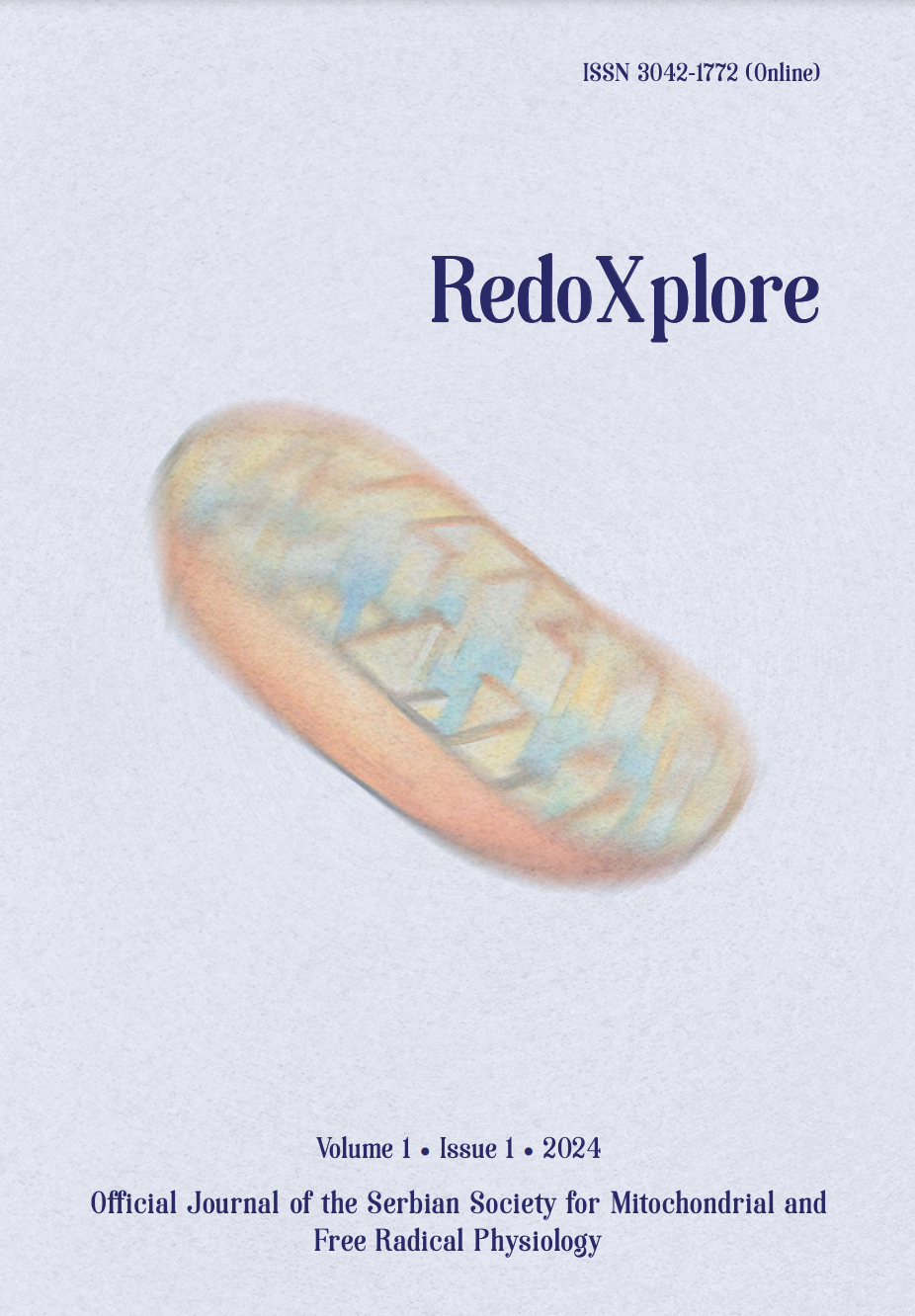
More articles from Volume 1, Issue 1, 2024
REDOX AND METABOLIC REPROGRAMMING OF BREAST CANCER CELLS AND ASSOCIATED ADIPOSE TISSUE - THE CORNERSTONES OF ADAPTIVE TUMOUR BEHAVIOUR
INSULIN MODULATES MITOCHONDRIAL STRUCTURAL AND FUNCTIONAL MOSAICISM IN BROWN ADIPOCYTES
NITRITE MITIGATES OXIDATIVE BURST IN ISCHEMIA/REPERFUSION IN BRAIN SLICES
NITRIC OXIDE, SUPEROXIDE AND PEROXYNITRITE – REDOX REGULATION OF THE CARDIOVASCULAR SYSTEM BY NITRO-OXIDATIVE STRESS AND S-NITROS(YL)ATION
DIETARY NITRATE AS PIVOT ON THE GUT MICROBIOTA-HOST REDOX COMMUNICATION
Citations

0
REDOX REGULATION OF NEUROVASCULAR COUPLING BY NITRIC OXIDE TO IMPROVE COGNITION IN AGING AND NEURODEGENERATION
Center for Neurosciences and Cell Biology and Faculty of Pharmacy, University of Coimbra , Coimbra , Portugal
Center for Neurosciences and Cell Biology and Faculty of Pharmacy, University of Coimbra , Coimbra , Portugal
Center for Neurosciences and Cell Biology and Faculty of Pharmacy, University of Coimbra , Coimbra , Portugal
Editor: Bato Korac
Published: 29.08.2024.
Keynote lectures
Volume 1, Issue 1 (2024)
Abstract
The physicochemical properties of nitric oxide (NO) as an intercellular messenger, in particular the way it conveys information via volume signaling, translate into advantages of communication in the brain. This becomes apparent when considering neurovascular coupling (NVC), the tightly temporal and spatial functional communication between active neurons and local blood microvessels. That the brain is energetically expensive given its mass and that increased neuronal activity in a region of the brain is associated with a local increase in blood flow (CBF) has been known since the XIX century. In turn, the association between CBF dysregulation and cognitive decline has been consistently established in older adults (brain aging, neurodegenerative diseases, type II DM) and lab rodent models but the neurobiological links are poorly understood. I will discuss the notion that neuronal-derived NO is the key mediator of NVC in the hippocampus and that impairment of NVC is an early and likely causative event leading to cognitive decline. The premise is that by rescuing the functionality of NVC then cognitive enhancement should be observed. This will be experimentally supported on basis of a diet-driven redox mechanism, involving the interaction of nitrite with ascorbate released from active neurons. Data suggest that an operational NVC, allocating energy resources according to neuronal activity, is a most fundamental biochemical process that underlines biological organization to support cognition.
Supported by project 2022.05454.PTDC (https://doi.org/10.54499/2022.05454.PTDC).
Citation
Copyright

This work is licensed under a Creative Commons Attribution-NonCommercial-ShareAlike 4.0 International License.
Article metrics
The statements, opinions and data contained in the journal are solely those of the individual authors and contributors and not of the publisher and the editor(s). We stay neutral with regard to jurisdictional claims in published maps and institutional affiliations.






